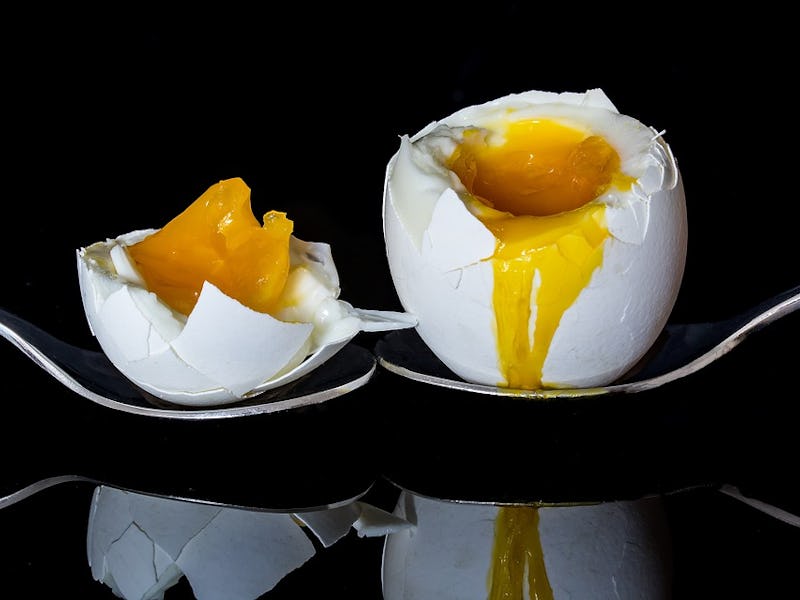Real-Life 'Golden Egg' Is Worth Millions of Dollars and Could Treat Cancer
How Japanese scientists created eggs worth their weight in gold.

Aesop’s tale of the goose that laid the golden egg ended with some greedy farmers butchering the bird for the gold they presumed was inside. But there’s no way the “golden egg”-laying hens that Japanese scientists recently developed will experience such harm. The hens, which lay extremely valuable eggs containing a protein crucial to cancer and hepatitis treatment, are far too precious to scientists to meet such a gruesome end.
The scientists from Japan’s Biomedical Research Institute at the National Institute of Advanced Industrial Science and Technology published a paper on their genetically modified hens in Scientific Reports in July. They’re in the spotlight now because the Telegraph reported on Monday that the team would collaborate with the biotech firm Cosmo Bio to raise the hens and commercially harvest the precious virus-fighting protein, known as human interferon beta, from the eggs for use in research. Currently, Cosmo Bio’s Mika Kitahara told the Telegraph, the company has about 20 in-house hens.
In (a), a normal egg is shown next to a 'golden' (KI, knock-in) egg. The regular egg in (b) clearly carries different proteins compared to the interferon beta-rich egg in (c).
In the Scientific Reports paper, the team, led by Isao Oishi, Ph.D., explains how hens were genetically modified to lay the precious, protein-filled eggs. On his web site, Oishi coins the term himself: “My research goal is development of ‘golden hen’, which produce ‘golden egg’ containing valuable recombinant protein in the egg white.”
The team started by inserting a gene into chicken germ cells that would lead to the production of interferon beta. Then, they stuck those cells into normal embryo and waited for the resulting chickens to grow up. The grown male chickens then mated with regular hens, and the next generation of hens were able to lay these interferon beta-rich golden eggs.
The human body naturally produces interferon-beta to help fight off infections, and the thinking is that supplementing the body with extra interferon-beta can help it fight off other diseases, like cancer and hepatitis. The problem is that it’s not easy to produce artificially. The brilliance of Oishi’s approach is that it hijacks a chicken’s regular protein-production machinery — egg whites are basically pure protein — to simply make a different kind of protein.
This isn’t the first time humans have manipulated protein production in other animals. Proteins crucial to the flu vaccine have been produced in chicken eggs, and proteins key to spider silk are being pumped out in goat’s milk (which is also protein rich). But the value of those experiments pale in comparison to that of a single golden egg, which, containing about 30 to 60 milligrams of interferon beta, is estimated to be worth between $535,995 and $2.6 million.